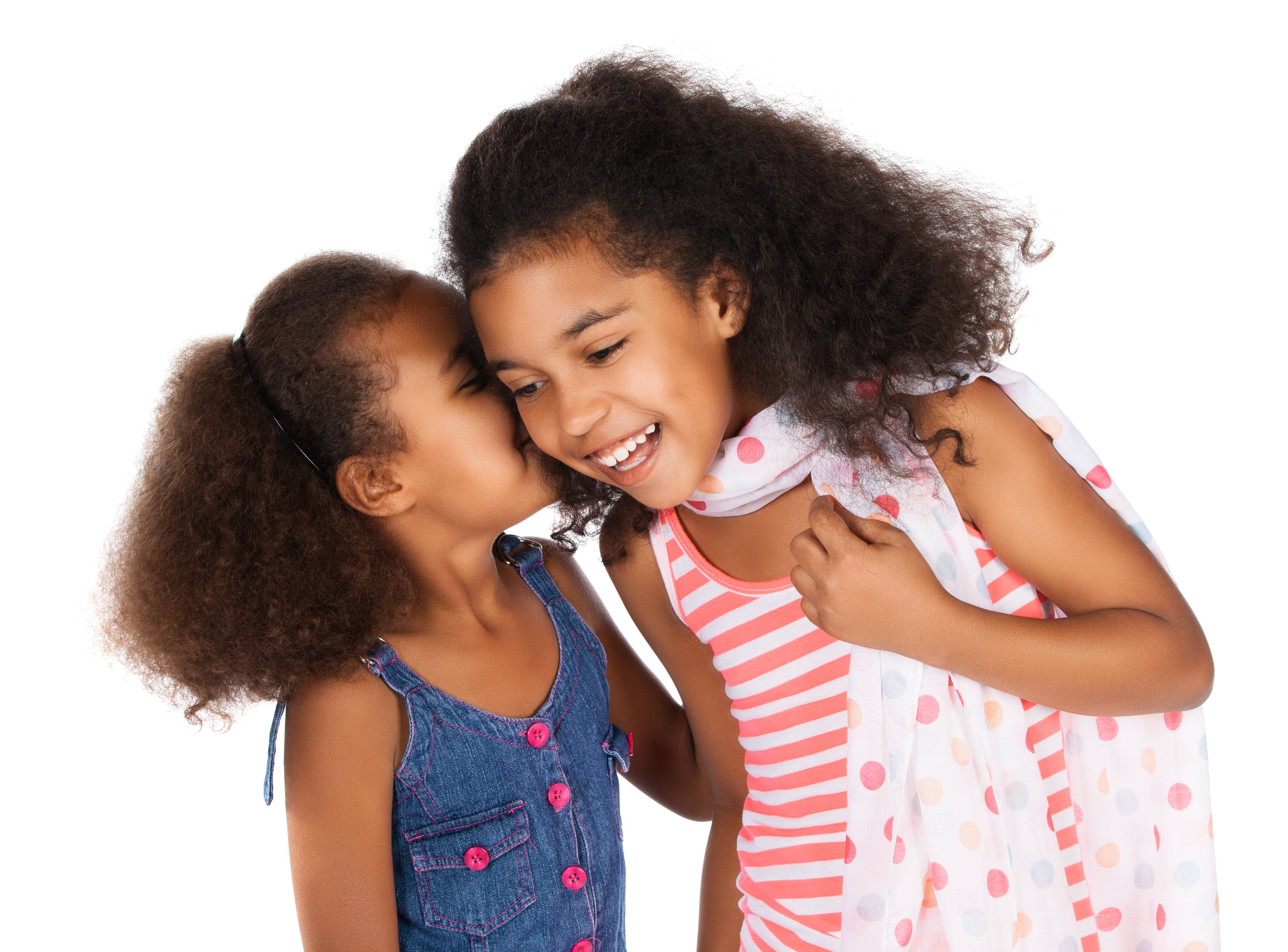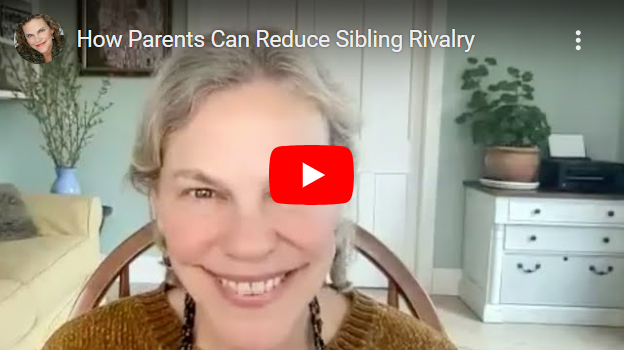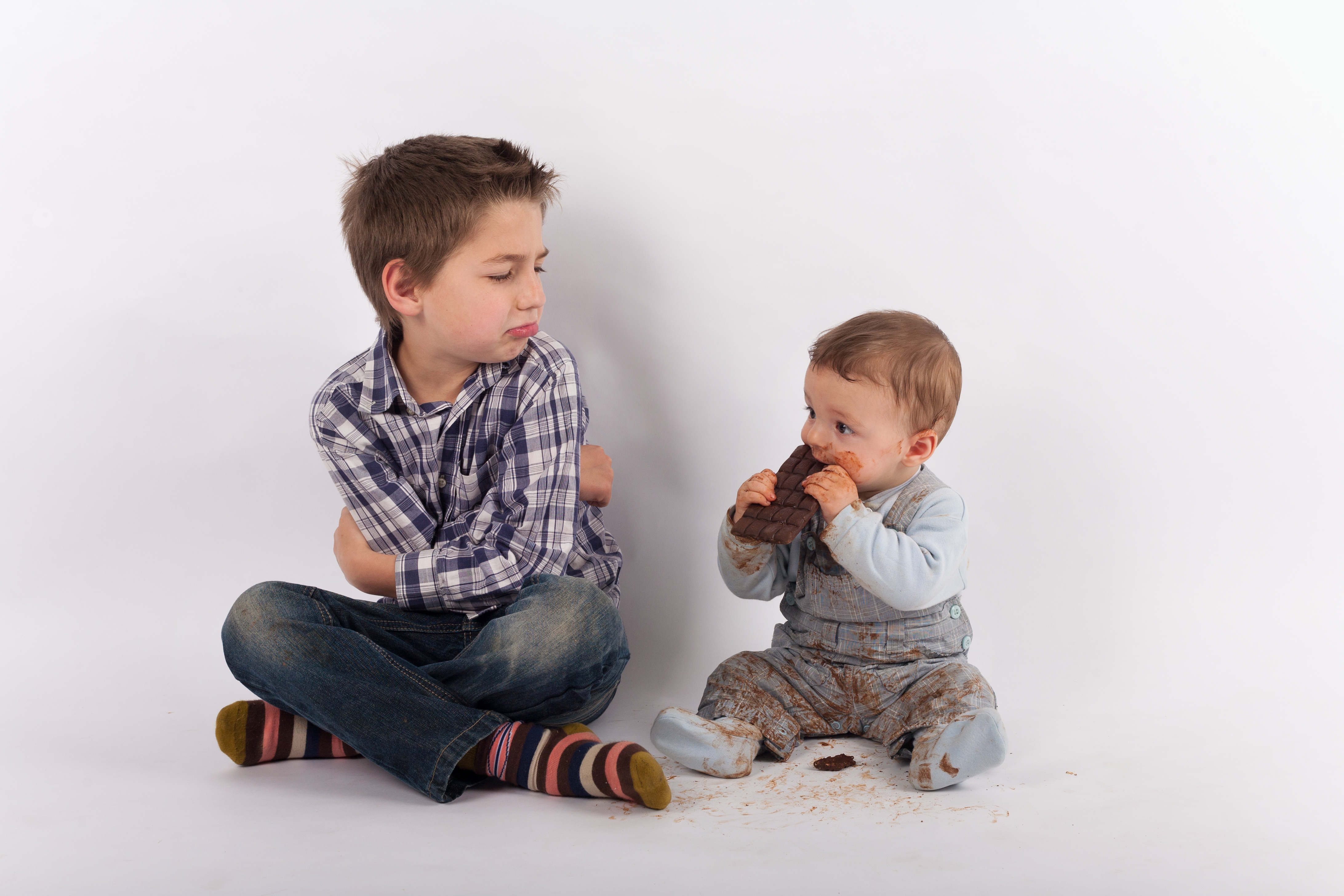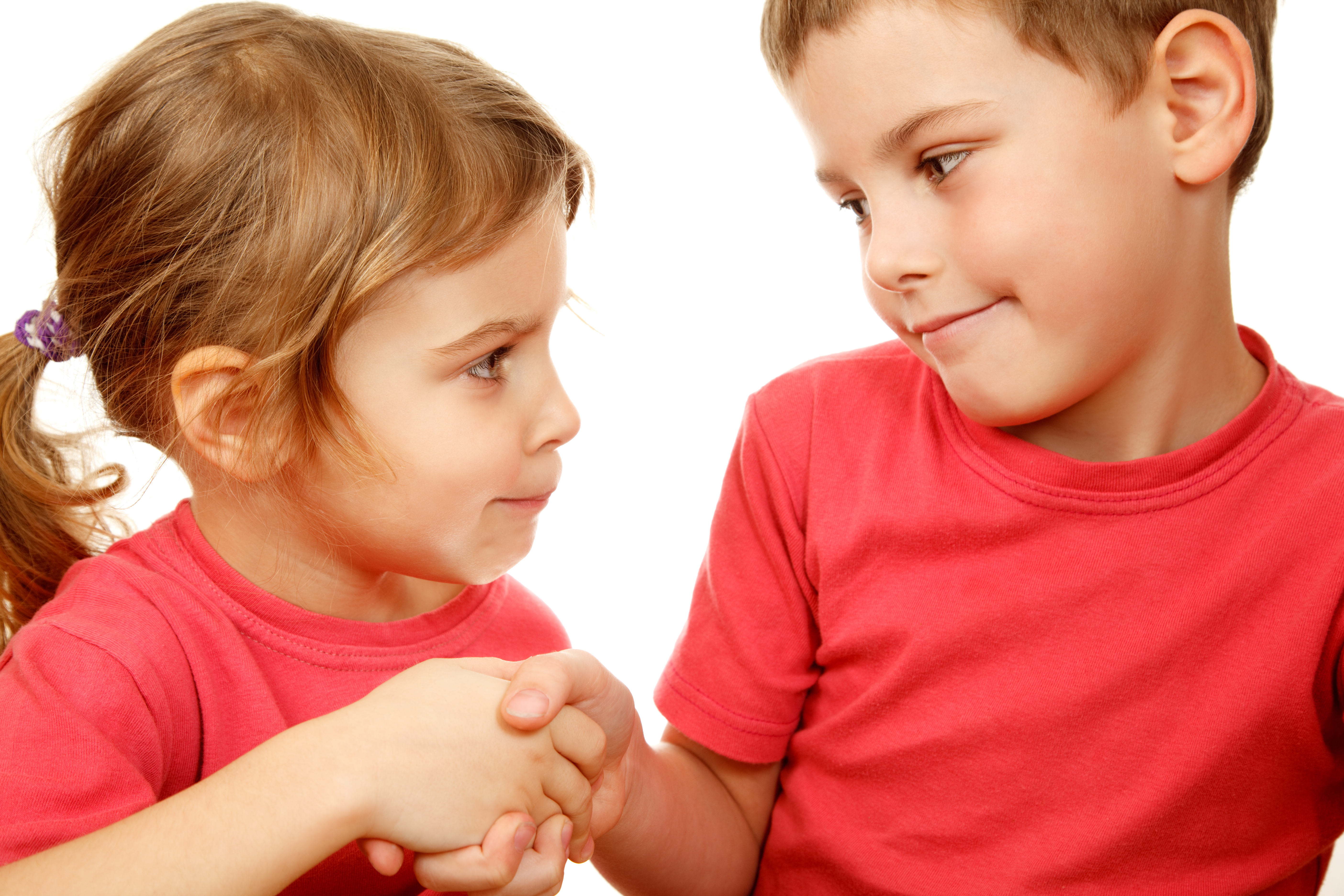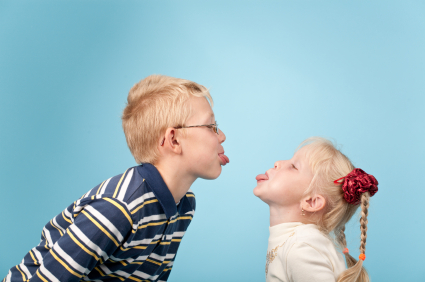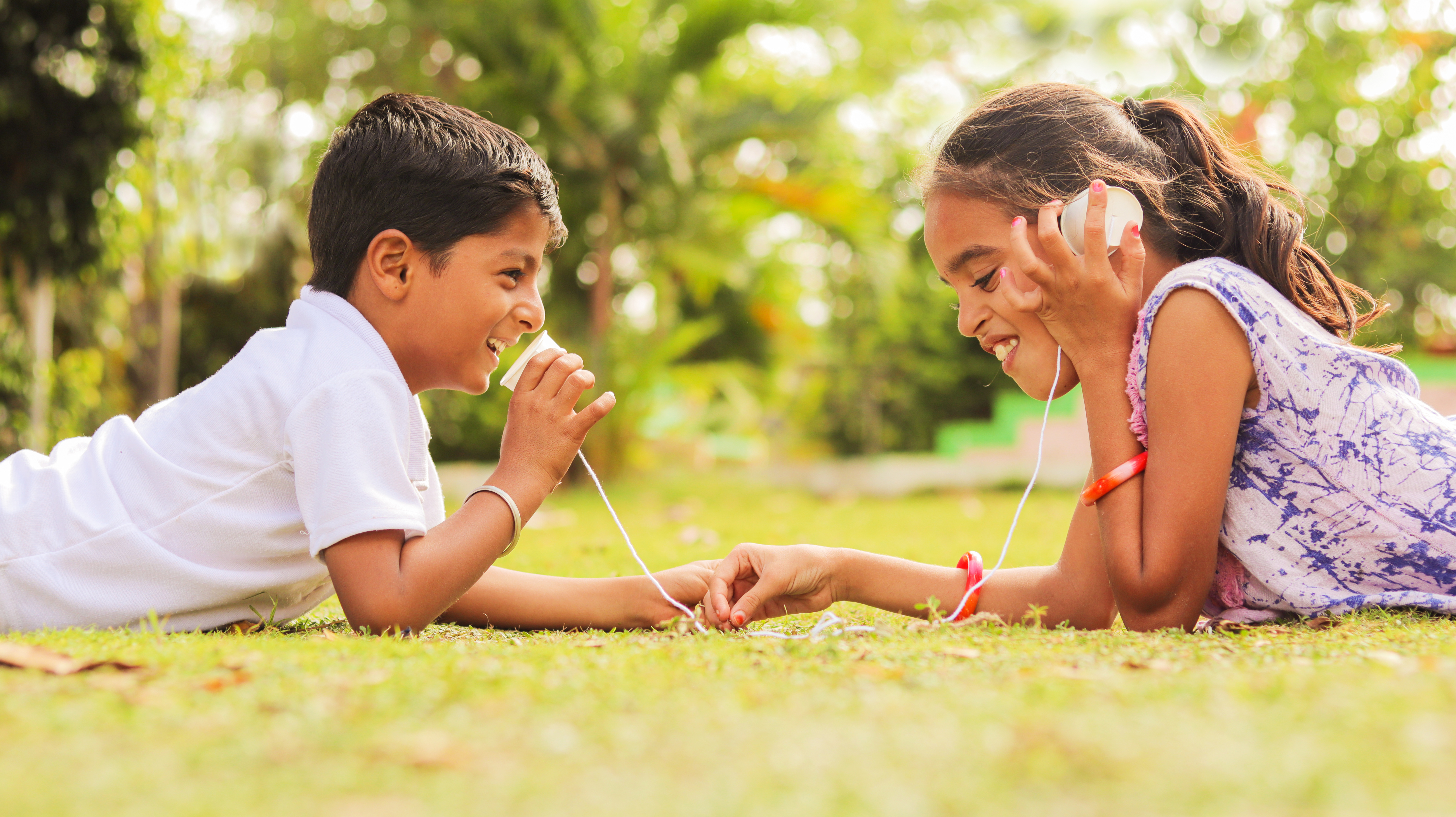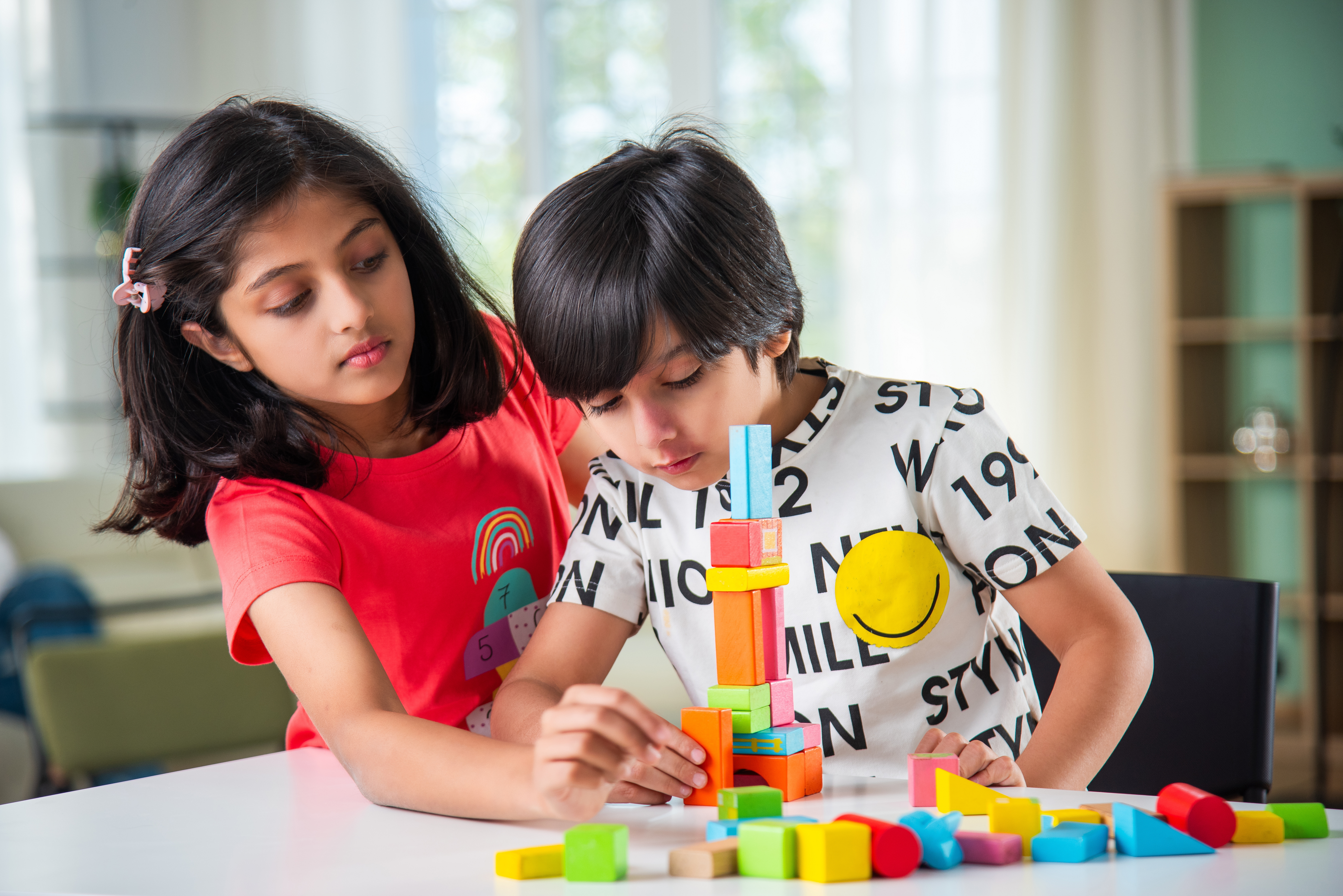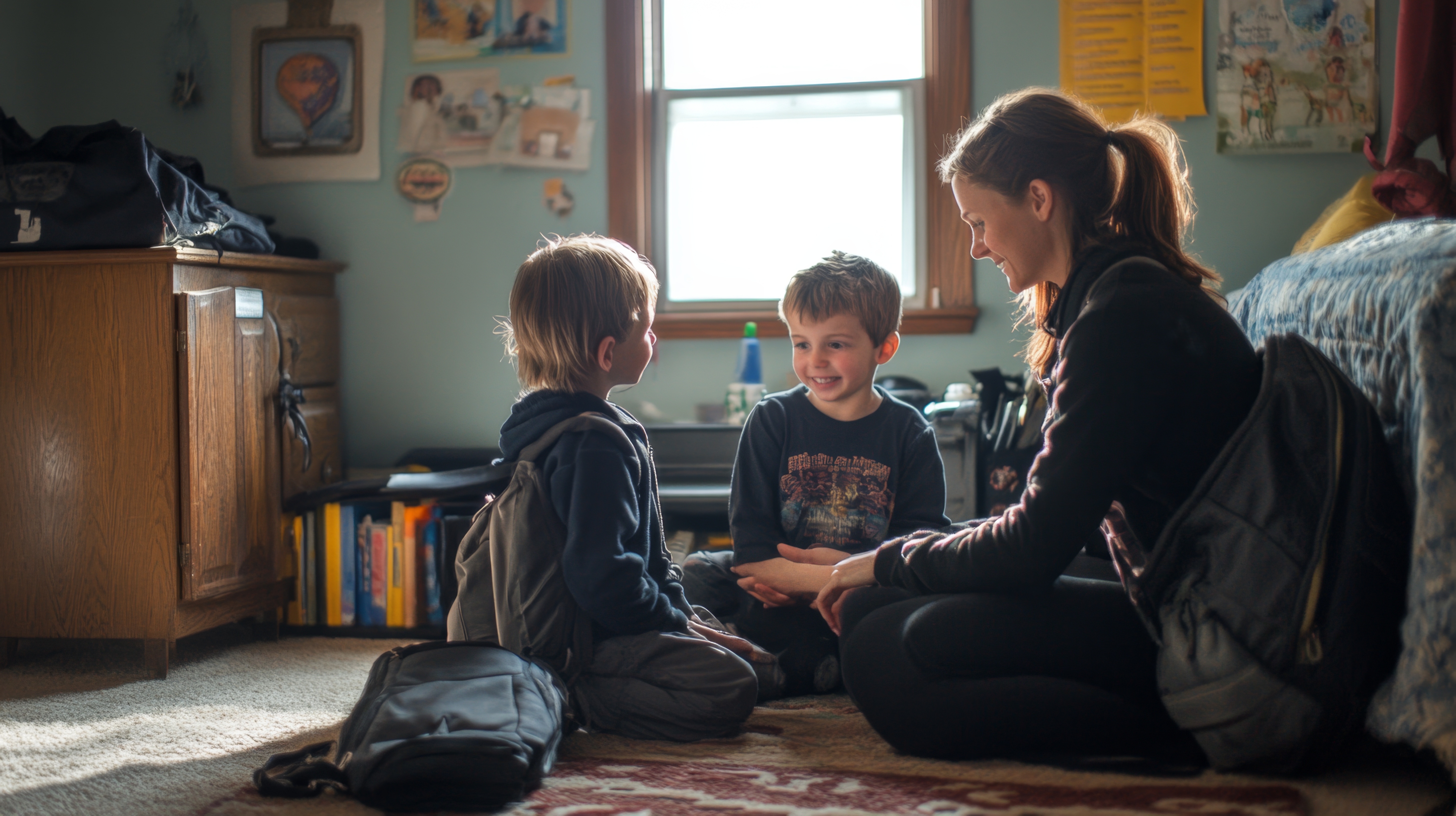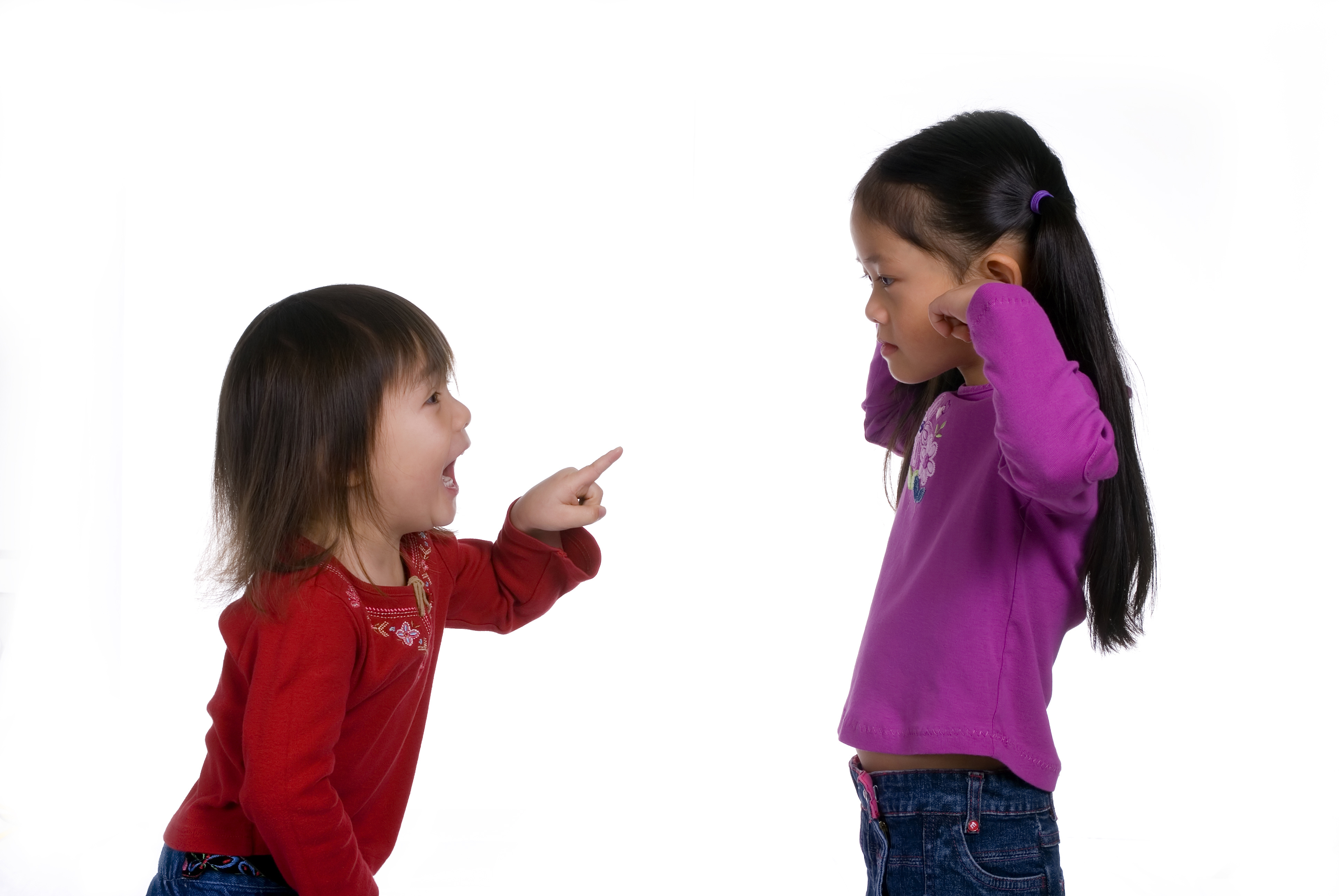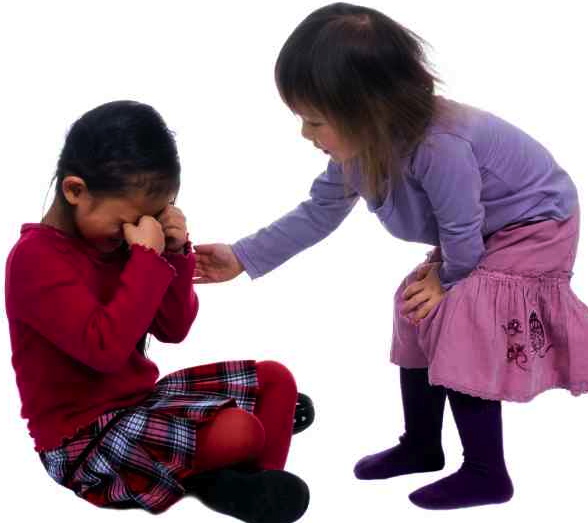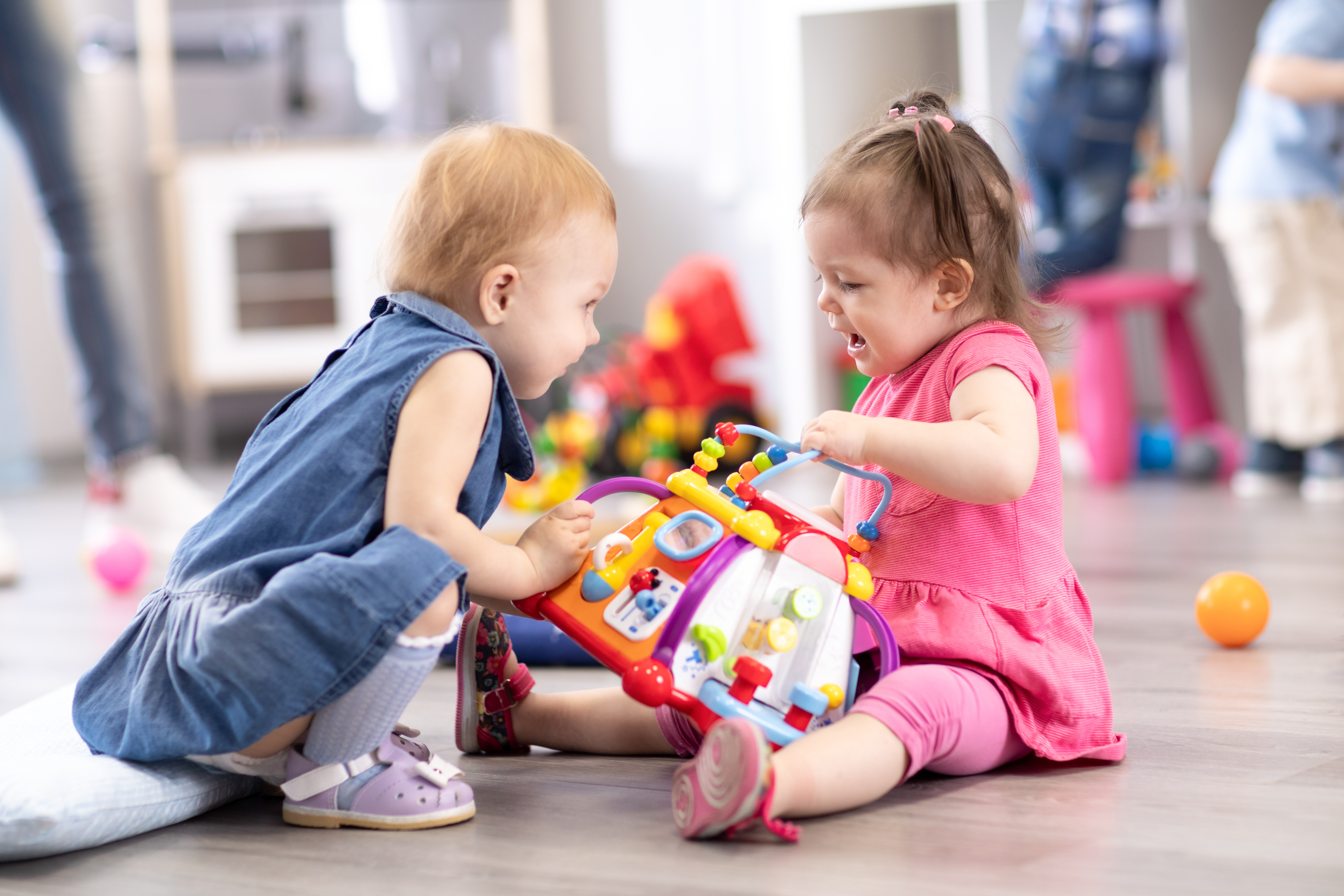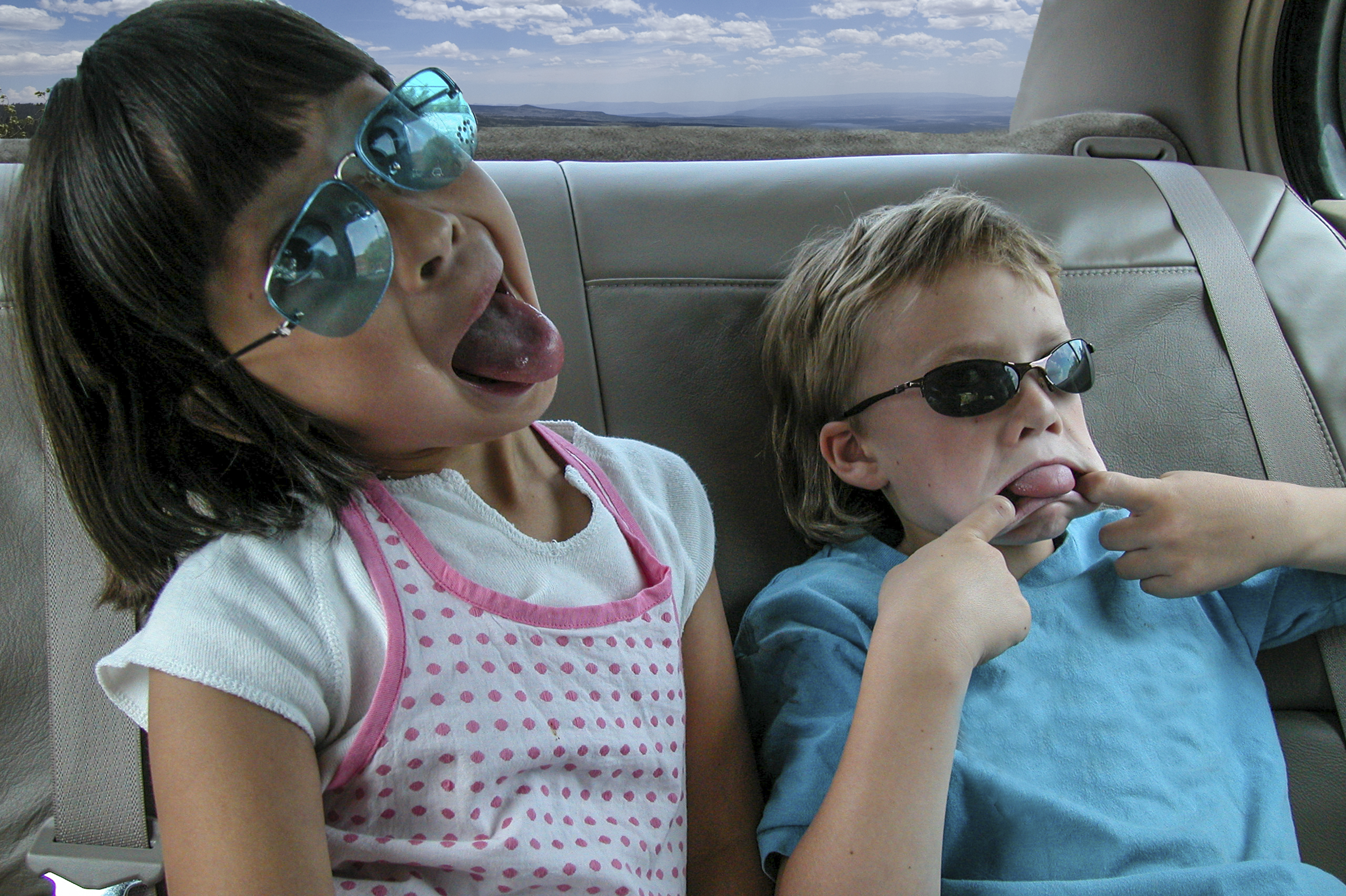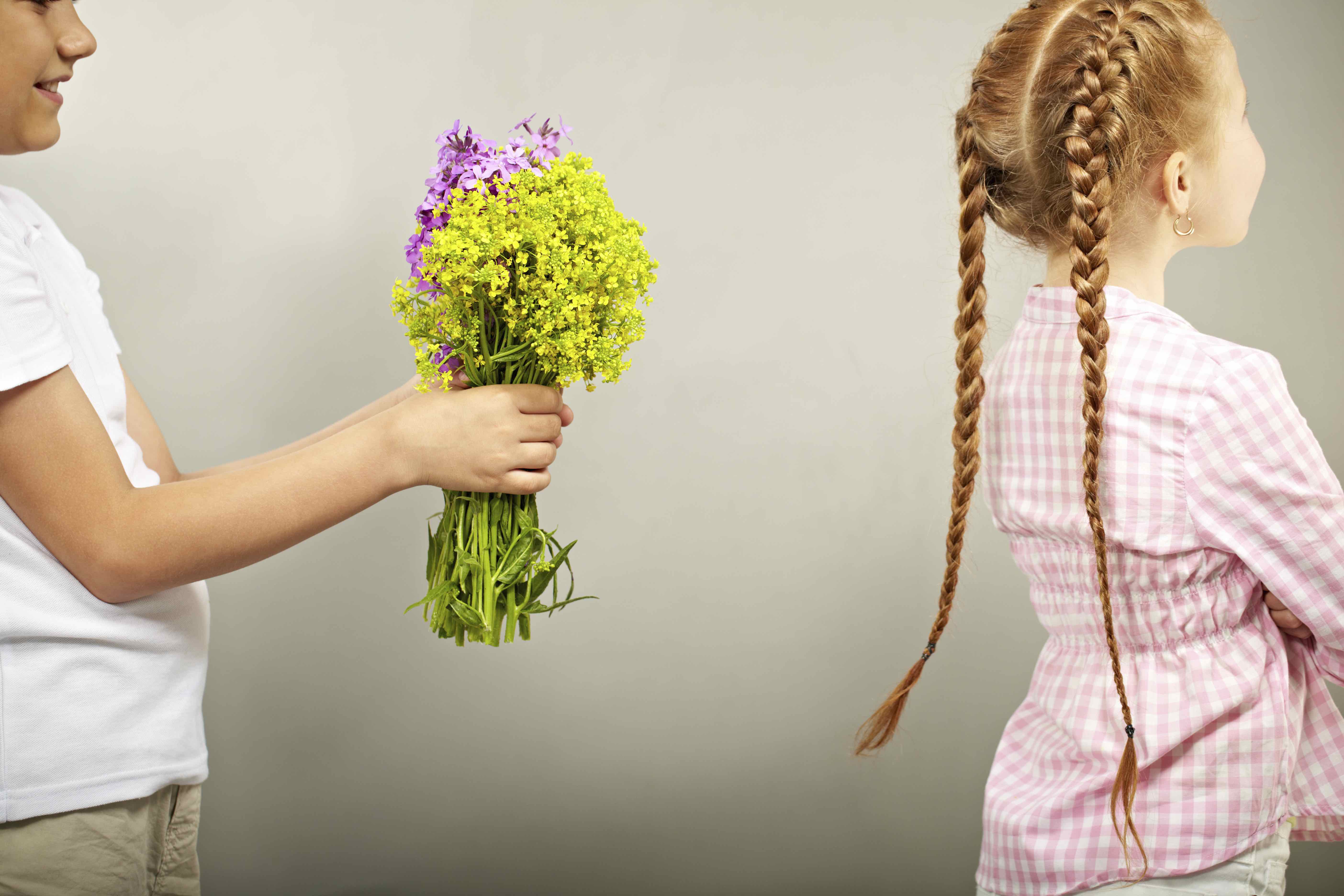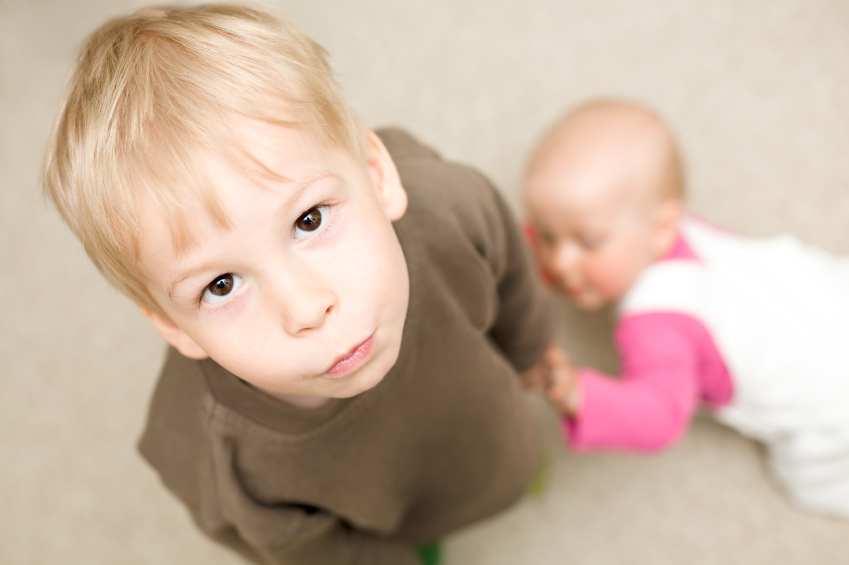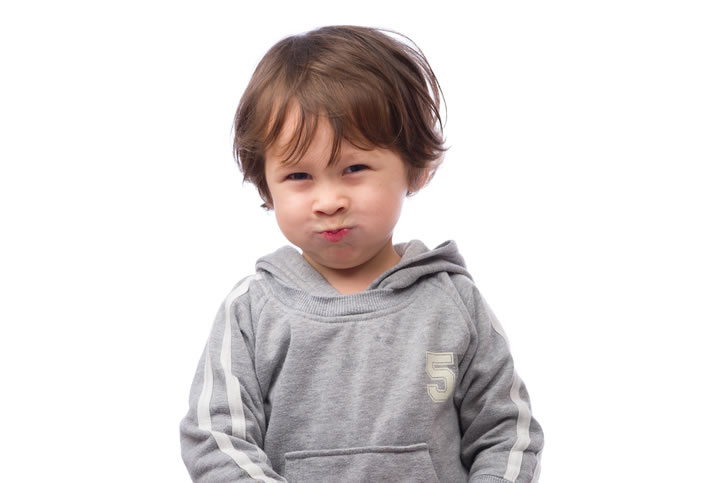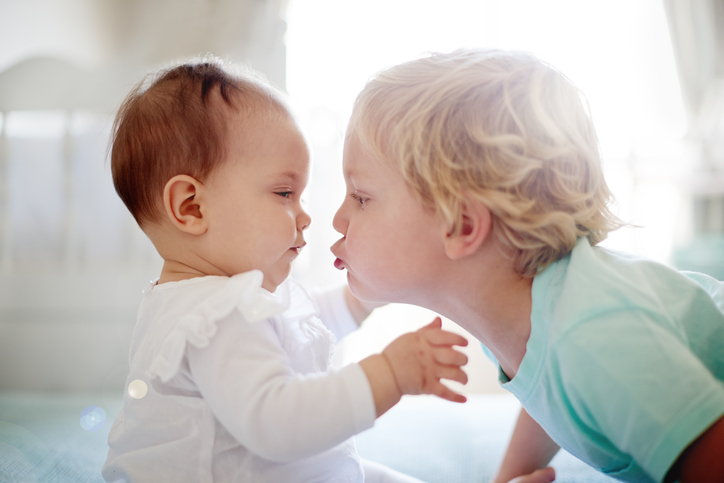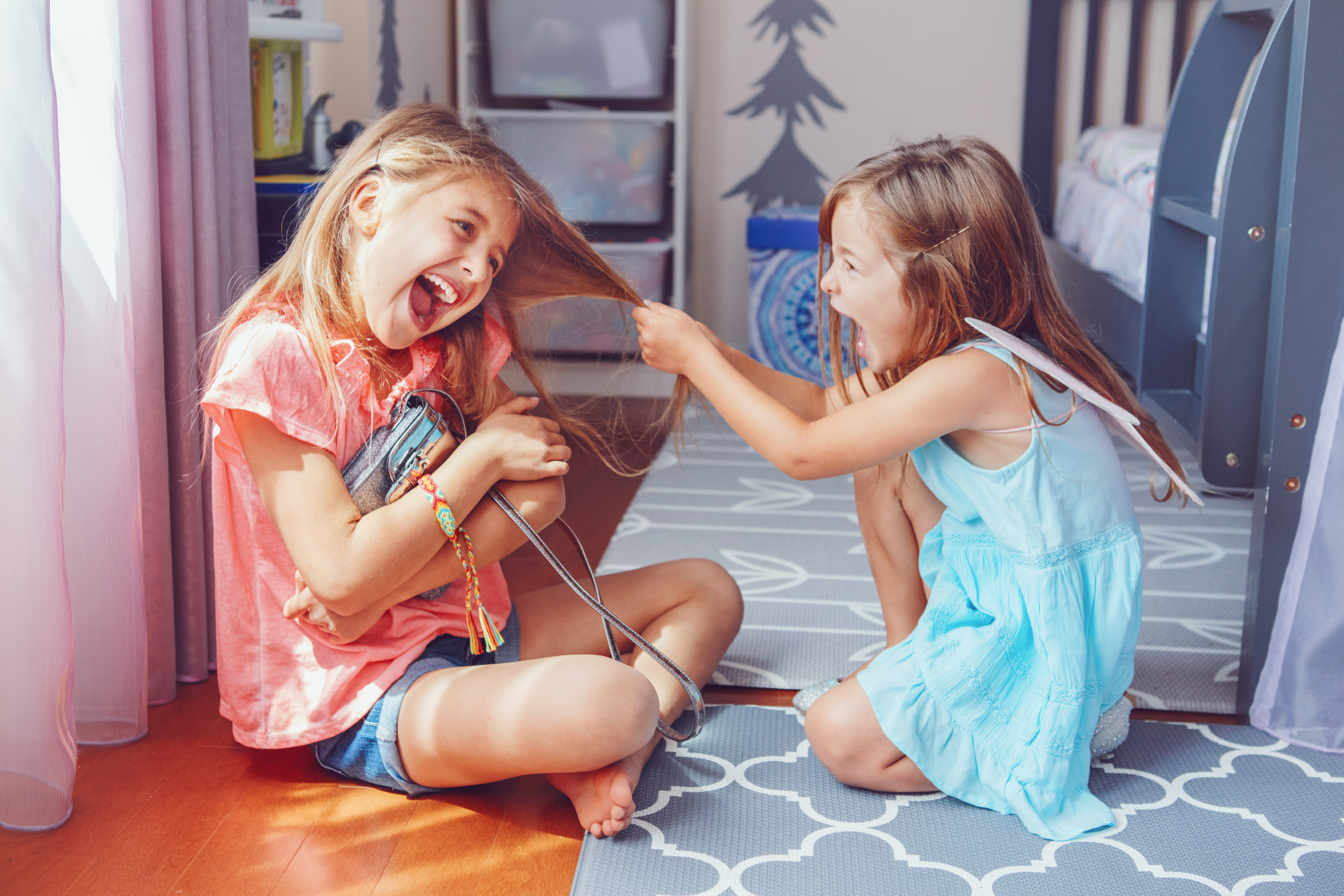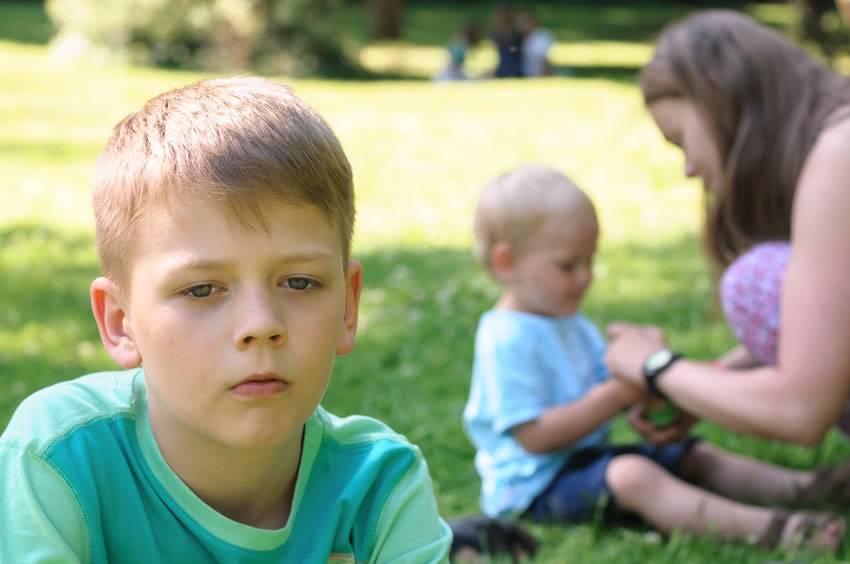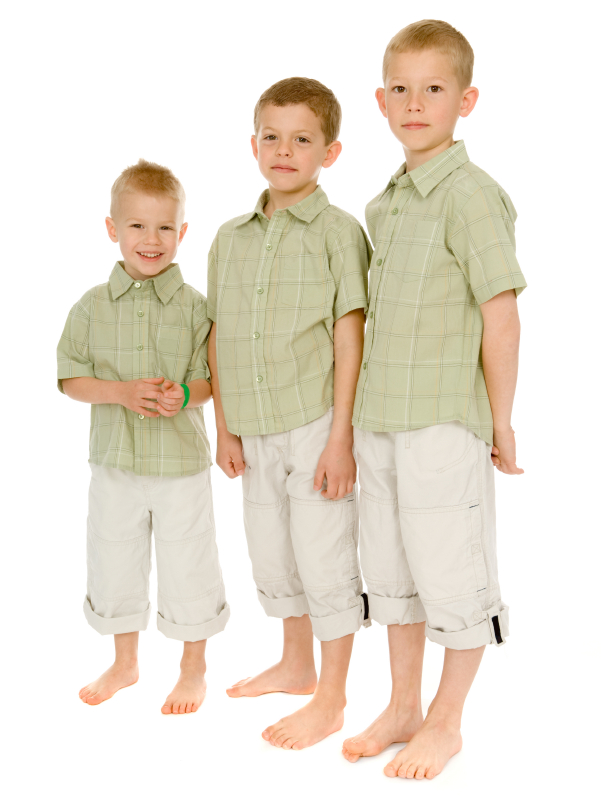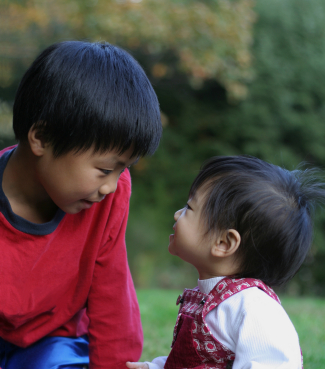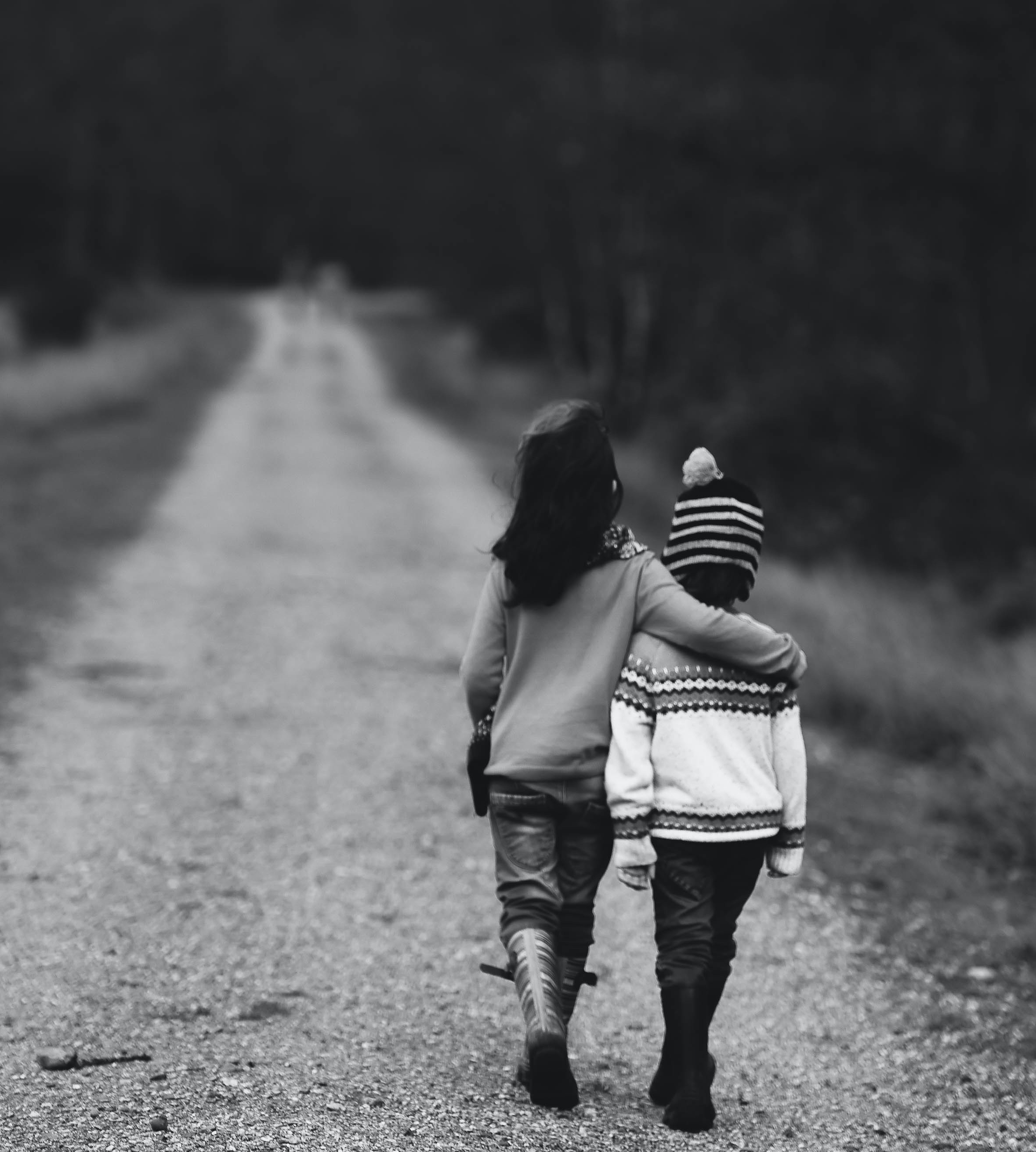Helping Siblings Get Along
If you have more than one child, you're bound to have some sibling rivalry. It's very, very hard for children to have to share us. In fact, when a younger sibling is born, virtually all children worry that they aren't good enough -- why else would their parents have gotten a newer, younger, model?
In addition to sibling rivalry, kids can have personality clashes, or clashes because they're different ages and want different things --or because they're close in age and want the same things!
Finally, like other humans who live together, even the most loving siblings have bad days and conflicts. And kids don't have the perspective to know it's not necessarily the other person's fault, or the skills to work out differences.
But your children can be friends for life, and your parenting can prevent and even transform sibling tensions. How?
Start Here:
Siblings 101: Top Ten Tips to Help Siblings Get Along
If you have more than one child, you're bound to have some sibling rivalry. It's very, very hard for children to have to share us. In fact, when a younger sibling is born, virtually all children worry that they've lost their parents' love. Why else would you have gotten a newer, younger, model?
Read MoreVideos to Make Parenting Siblings Easier
The only thing harder than raising a child is raising more than one child at the same time! Many parents say that sibling conflict stresses them out more than any other child-raising challenge. You can't completely avoid sibling rivalry, but the good news is that you as the parent have more power than you know to help your children get along.
In these four videos, Dr. Laura Markham shows you:
- What causes sibling rivalry
- How to intervene in a sibling fight
- How to heal resentment between siblings
- What parents can do to prevent and heal sibling rivalry
These videos will help you transform sibling tensions, so you can stop the fighting and raise friends for life!
Read MoreThree Tools To Dissolve Sibling Jealousy
All children will sometimes feel jealous of their siblings. If we don't recognize that jealousy and respond constructively, it can fester and harden. Luckily, research shows that there are effective ways to dissolve sibling jealousy and give love a chance to grow. Here are three approaches that will work for children of all ages, to help them dissolve the tangled up feelings that trigger sibling jealousy or even aggression.
Intervening in Sibling Fights
Most parents rank kids' fighting with each other as the parenting issue that most bothers them, and that they feel most confused about how to handle. Here's how to intervene so children learn the skills to work things out!
Read MoreA Script To Intervene In a Sibling Fight
Charley: "Jane, did you mess up my lego ships? You did! You messed them all up!"
Jane: "I didn't hurt your stupid legos."
Charley: "They are not stupid, you're stupid!"
Jane: "Get out of my room!"
Charley: "You're not the boss of me!"
Jane: "I'm the boss of my room! Get out!"
Charley: "You messed up my lego ships! I'll mess up your room!" (CRASH!)
Jane: "I hate you, Charley! MOM!!"
Helping Siblings Communicate Instead of Fight
Conflict is part of every human relationship, because every relationship has two people with different needs and perspectives. Our job as parents is to teach our children to manage that conflict in ways that bring them closer.
Read MoreHow To Prevent Sibling Fighting
The truth is, you can't prevent all sibling fights. But, you wouldn't even want to! Conflict is a part of every human relationship, and kids learn from fighting with each other how to express their needs and wants, respectfully set boundaries on the behavior or others, and problem-solve to find solutions that work for both people. You can, however, reduce fighting, and make the fighting that does occur more civil. Here's how.
Read MoreEmotion Coaching to Prevent Sibling Fighting
When parents support their children to develop emotional intelligence skills to manage big emotions, empathize with others, and navigate disagreements, the sibling relationship improves. Squabbles diminish, kids are more supportive of each other, and their relationship becomes stronger for the rest of their lives.
Read MoreWhy Kids Bicker and How To Help Them Stop
What's bickering? Arguing about something trivial. But of course nothing is too trivial for siblings to argue about, or at least it seems that way some days!
Read More7 Powerful Ways to Help Kids Develop Social Intelligence Skills Every Day
How do children learn social and emotional intelligence skills?
Read MoreTeaching Kids To Share
All parents want to raise children who are generous, good people. We find kids' frequent fights over toys wearing and a bit ridiculous. After
all, your son hasn't looked at that toy in over a year, but as soon as his little brother (or visiting friend) unearths it, he has to assert
immediate ownership.
12 Tips to Build a Stronger Sibling Bond
“In many sibling relationships the rate of conflict can be high, but the fun times more than balance it out. This net-positive is what predicts a good relationship later in life. In contrast, siblings who simply ignored each other had less fighting, but their relationship stayed distant long term.” - Po Bronson
Read More10 Tips to Foster a Sweet Sibling Relationship From the Start
Read More“I let my five year old son give my two month old a bottle. It gives the older kids a care-taking role. Now if the baby cries, they both start offering solutions.’ Maybe he needs a diaper? He's hungry Mommy. He needs a binky.’ Then I'll suggest the wrong thing, and they'll correct me. ‘No Mommy, he doesn't want his binky. He's hungry.’ ‘Oh, I see, you're right... Thank you for letting me know!’”
Bickering in the Backseat: How to Cope on the Way to School
It’s finally the first day of school. Your children are so excited, they took forever to fall asleep last night. They struggled this morning over what to wear. They barely picked at that healthy breakfast you got up early to make for them. Their excitement is tinged with nervousness, naturally. And who better to take it out on than their brother or sister, sitting next to them in the back seat?
Read MoreShould You Make Your Child Apologize?
After there's been a falling out between siblings, most parents insist that their children apologize to each other. Most of us do this automatically, because it's expected, but also because we think that will teach the child how to repair things after a conflict.
Read MoreWhen Your Toddler Grabs from the Baby
“Dr. Laura, Our 3 month old is starting to play with toys, and the toddler always grabs them away from him. The baby is still too small to care that the toy gets taken... for now. Until now, we've handled sharing toys as you suggest -- we don't force it, we talk about taking turns, asking the other child if they're done, etc. I'm a little less sure how to apply this logic when there is an age discrepancy. We can't ask the baby if he's done. I feel quite certain that I don't want to force my toddler to share, but sometimes I find myself saying, "Your brother is using that!" because it seems like he shouldn't just be able to take every toy the baby plays with. I'm at a loss for what to do. Please help!“
Read MoreWhen Your Older Child Hits the Little One: A Script
Henry, age 3, is playing with Sophie, 15 months, by grabbing a toy away from her. Sophie loves his attention and giggles at this interesting game, especially because he restores the toy to her every time. But Henry is getting rougher each time, and Sophie is clinging harder to the toy. He wrenches it away from her. Sophie bursts into tears. Henry, feeling guilty, says “You act like a baby!” and reaches out and shoves her down, hard. Now Sophie is wailing.
Read MoreHow To Stop Your Toddler From Hitting Older Siblings
"My toddler climbs on my five year old's back like a monkey and won't get off."
"My 22 month old younger daughter very aggressively scratches my older daughter, who is 3 and a half."
"The 2 year old is beating up on the 8 year old at our house!"
Read MoreWhy Kids Hit Younger Siblings, and How To Help Them Stop
"Dr Laura -- My 4 year old hits my 9 month old. It is very hard to see any danger signs with him as he will push or hit her out of the blue. One minute he is sitting there patting her gently and cooing and then in a flash he will push her over or hit her. There is not much outward anger in his feelings so I struggle to know how to deal with the situation as I feel silly saying to him "You are angry" when he shows no signs at all of being angry or upset -- he seems to just do it for the fun of it. - Belinda
Read MoreHow to Help Each Child with Big Emotions
Read More“I have found when another child is witnessing the process of helping kids with emotions they become aware and able to help. Mine often imitate what they've seen me do and can even help each other through upsets on their own with empathy and understanding.”
-Seasyn
Staying Calm When One Child Hurts the Other
“The only thing that really makes me lose it is when my four-year-old repeatedly is physically violent to his two-year-old sister. I try to do what you say, and say, ‘Quick, Sammy, can you get her an ice pack?’ and turn him into a helper. He’s good at it. But it makes me mad if they’re fighting and I say ‘I’m coming to help’ and then he throws her to the ground and busts her head."
Everybody's got a hungry heart, especially when siblings are involved.
"Whereas he was once the center of your universe, he has been displaced from this paradise. He is now in time out, while you coo at his tiny rival. You cannot, of course, push back the clock to a time when he, alone, was the apple of your eye. All the same, trying to imagine how frustrated your 3 year old must often feel can help you counteract his sense of loss. Your expressions of love, gestures of devotion, and moments of intimacy with your son can help him feel less deserted and alone. Helping your son recapture a sense of shared joy in his relationship with you will turn down the fuel of his hate, and smooth the pathway to his identification as a loving, protective, sharing person." - Elizabeth Berger
Read MorePreventing Middle Child Syndrome
Studies have found that middle children
are often less close to their parents. That makes sense. They never had time as an “only” child the way the oldest child did, and
they didn't get to linger as the baby because another child came along. Often, parents really are less close to the middle child because
there is simply less one-on-one time to build a relationship.
Supporting Your Oldest Child
It’s hard to be the big sib. No matter how old you are, you’re expected to take more responsibility, even when you’re a very young person yourself. That’s one reason that oldest children are often described as responsible, sensitive, perfectionistic, and a bit more anxious than their siblings.
Read MoreSupporting Your Youngest Child
“You always win because you’re eight! But someday I’ll be nine, and then I’ll be older than you, and I’ll win!”- Five year old.Read More
Siblings Downloadable eBook
One of the most fundamental ways you influence your children’s relationship is the expectation you hold about it. If we can hold the expectation that as a family we will always work things out with each other, that we deeply value our relationships with each other, that siblings have a unique bond that is to be treasured and protected, then we’ll transmit that assumption to our children.
Read MoreSibling Transition Downloadable eBook
Many women worry about leaving their older child when they go to the hospital to give birth to the baby. It doesn't help that labor is by definition unpredictable in both onset and length, making it even hard to prepare a child who is often little more than a baby himself.
Read More